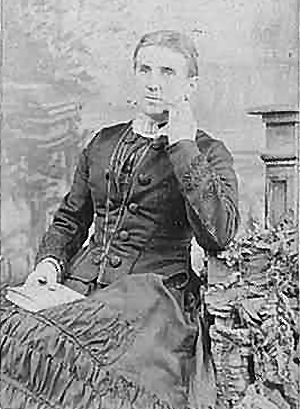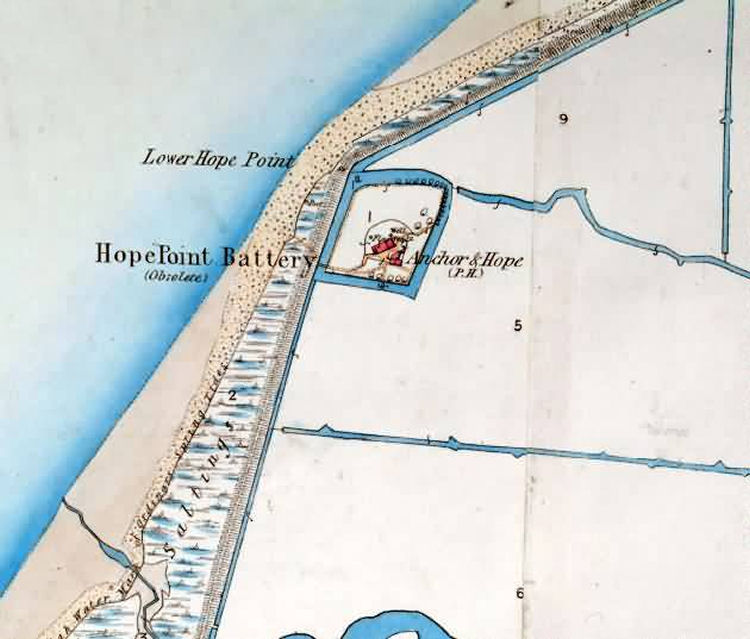|
The following information has been taken from
http://www.cliffehistory.co.uk/pubs.html
The "Anchor and Hope" alehouse was situated at Lower Hope Point and
served the increasing number of seamen and rivermen who frequented the
number of jetties and mooring places along the Thames foreshore.
According to an entry in Kelly's Directory of 1862 Hope Point had a
small battery, built in 1796, that was converted into a public-house:
the "Anchor and Hope,"
frequented the number of jetties and mooring places along the Thames
foreshore. The North Aylesford Petty Sessional Division Magistrates Court entry for
1840 shows that a Mr. John Huggins successfully applied for a
victualler's licence which he held until May 1844 when it was
transferred to Mr. Joseph Henry Germain (born 23rd October 1797.) Mr. Germain lived on the premises with his wife, Sarah, and his 8
children. Unfortunately he died of Apoplexy (possible stroke or heart
attack term was used to record sudden death) witnessed by his daughter
Margaret (shown right) before the birth of William, his ninth child. After his death in September 1857 his wife, whom he married on 9th May
1831 in Chatham, Sarah Ann Germain, ne้ Morling, became the licensee. Joseph, after marrying Sarah, went to Canada where their first child
Margaret was born. Whilst on their return to England Sarah gave birth to
their second child, Joseph Colyton, on 5th November 1834 whist at sea. Joseph Colyton died at the age of 11 in 1845 as did his younger brother
Henry, who was aged 9. There is no recorded record of any other licensee after 1862 so it
appears that the Anchor & Hope ceased trading as an alehouse after this
time. This was possibly due to competition from ‘The Shant Pottery
Beerhouse' at the Johnson's Cement works site known as the "Masons Arms"
or due to the building of the new alehouse, The "Canal Tavern," by the
Pottery. After the closure of the beer house the house became a private dwelling
known as Hope House. Hope House, in 1918 was lived in by Mr. Shacklady
who was the manager of the Curtis & Harvey Powder Works. It was a large
house complete with tennis courts. |

